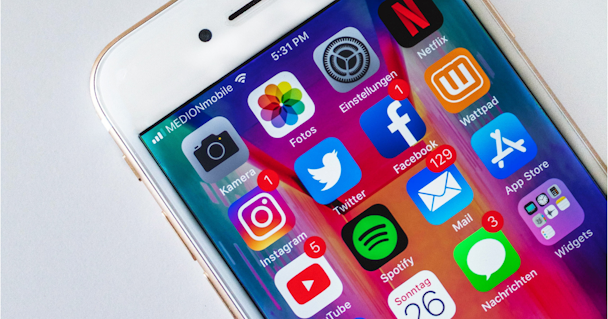Social media doesn’t need a ‘mental health levy’ – it needs to be treated like an addiction
The head of the NHS, Simon Stevens, this week has called for Facebook and Instagram to fund treatment of mental health problems because of the damage caused by social media.

We have a responsibility to raise awareness of what is actually going on behind the scenes: addiction. / Unsplash
This 'mental health levy' follows a huge rise in admissions to mental health services, particularly among teenage girls.
Taxing the tech giants is fine – they’re good for the money and the NHS needs it – but it’s more a response to other economic and political factors we’re experiencing right now.
If people want to get serious about the issue, and we need to be, then we have a responsibility to raise awareness of what is actually going on behind the scenes: addiction.
Working with Be GambleAware, And Rising has thoroughly researched the impact of gambling on young people. What we found was this addiction was very similar to the dark cloud that is hanging over young people today as they scroll through Instagram and Facebook.
Numbers give you a dopamine hit. It feels really good. And you want it again. It’s this rush that has our hands twitching when we are gambling, and when we are near our phones, desperate to open the app to see how well our profile is performing. It is what drives us to delete content that we deem underperforming and therefore unworthy of its place on our feed.
345 likes. 45 likes. 635 likes. You start sharing and reading the metrics. That then triggers a different set of brain patterns not currently being recognised. You are, effectively, somewhere between gambling and banking.
Social media has gained its territory on the same devices, or let’s say vices, that 'monkeynomics' (thanks Laurie Santos) or your standard gambling machines operate on.
You input and irrational numerical outcomes start informing you. This is a downward condition, which has nothing to do with the positive side of being able to share, express, create and publicise.
The pressure of an ‘edited lifestyle’ contributes, but offering numerical outcomes is what is twisting people's brains. In tests when the likes Facebook stop serving up data to users around engagement people start coming off the platform. Which is why they feed you more of it.
Be GambleAware’s objective is to broaden public understanding of gambling-related harms, advance the cause of harm-prevention and help those who develop gambling-related habits. Most importantly, it raises awareness to alleviate the stigma around the problem of addiction.
What we are seeing happening among young people today is not going to stop unless we actively intervene and treat the problem for what it is: addiction.
As a society, we should follow the lead of GambleAware and engage social media platforms in conversation, involve them, instead of just demanding money from them.
As time goes on people will figure this stuff out, some already have. But while we continue to demand money, rather than provide a solution, nothing will change.
Jonathan Trimble is chief executive at And Rising

